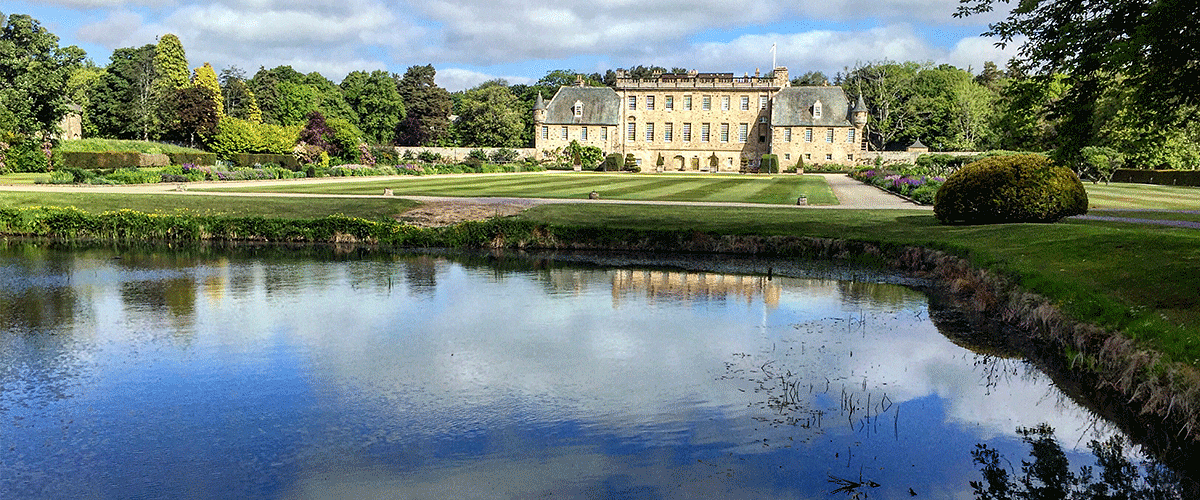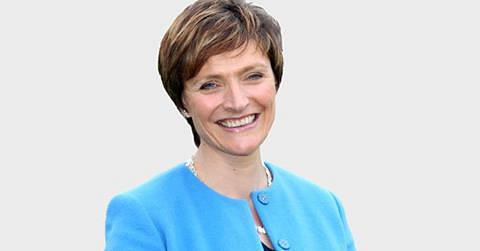We must try to talk our way out of this crisis
We must try to talk our way out of this crisis.
By Lisa Kerr, Principal at Gordonstoun

Dialogue, rather than debate, will be vital to overcome the complex challenges facing society once the lockdown is lifted. Lisa Kerr, Principal

‘We’re all in this together”. That’s supposed to have been the mantra of the Covid-19 crisis. Sadly, it’s feeling increasingly far from the truth. In terms of the virus itself, those living in deprived areas are more likely to contract and die from it and those working in health and care are disproportionately risking their lives as, in keeping others safe, their health is at risk.
But it is in how the rest of us behave in lockdown that fractures are increasingly showing. We have all read of key workers who, in order to protect their families, are living away from home, finding shelter where they can. Yet the sight of a stranger in an area has sometimes provoked anger from locals who wrongly assume the person in their midst is sneakily enjoying a holiday. I can scarcely imagine completing a 16-hour shift witnessing suffering and death, then returning to a lonely space for sleep only to awake to a torrent of abuse and a damaged car. Drivers have become irritated at a group of apparently “road-hogging” cyclists, which turns out to be a family protecting their wobbling children undertaking daily exercise and then there are the cyclists who have been enraged by apparent “Sunday drivers” on country roads who are actually en-route to an ill or vulnerable relative.
Appearances are often deceptive and during this lockdown period, when many are literally frightened for their lives, emotions are running high. As well as jumping to conclusions, we may take out our fears and frustrations on those emotionally or physically nearest to us, our spouse in the kitchen or the shopper going “the wrong way” down the supermarket aisle, or those who are doing their best to adapt to new circumstances. Treating my children to their first takeaway of lockdown recently, the joy of collecting the pizzas soon dissipated when I heard of the verbal and online abuse the restaurant owner had suffered in reaction to reduced opening hours and menu.
And in education, tell me a school leader who hasn’t had to counsel a teacher who’s been on the wrong end of a call with a parent frustrated by online learning, wearily accepting that parents need someone to whom they can vent their frustrations.
But there are positive signs, such as the Thursday night Clap for Carers. It’s that kind of tolerance and understanding which we need to foster in the coming weeks and months and which will be particularly important as we move towards lifting the lockdown. If something as simple as “Stay Home, Protect the NHS and Save Lives” was challenging to communicate, the complexity of what comes next will be harder still.
As we move forward we will all need to learn to cope with nuance and apparent contradiction. It is self-evident that, just as we did not know how Covid-19 would behave, neither do we know, for certain, how to emerge from it safely. And we must not pretend that our leaders do — or should do — either. This will be difficult, and depends upon trusting the good motives of others. It also depends upon good listening skills and the ability to put aside our political differences, just as our political leaders and national governments have sought to set aside theirs in recent weeks.
Whilst catchy slogans can drive short term behaviours, I’m convinced now more than ever of the need to return to the fundamentals of empathy and understanding as the basis for brokering effective, long lasting solutions with which everyone can feel settled. And with concerns that the public may be less ready to agree to return to work than they were to stay at home, this is vital. It’s also an approach which we at Gordonstoun have been advocating for some time.
The school was founded in 1934 by Kurt Hahn, a Jew who fled Germany under persecution from the Nazis who encouraged a deep understanding and tolerance of others.
Today, through a technique known as “dialogue”, we teach our students that it is possible for people with different perspectives to reach a common understanding. The Gordonstoun Dialogue Society is an antidote to the polarised approach in modern politics. Unlike debate where the goal is to convince others of your position, dialogue focuses on a willingness to re-evaluate our views.
If we have learned anything it should be how little good has come of Yes/No or Leave/Remain debates. We must not enter this crucial period of deciding how to get our country back to all kinds of health by suggesting that the Lockdown/Lifting is a choice between health and the economy, for that is a false and dangerous simplification. Instead, we will need to find ways to hear of the complexities of balancing different health priorities: reducing contact with Covid-19 versus making sure early cancer is detected.
While some will suggest that the rich will benefit from opening up the economy, others will remind us it is actually the poor who are suffering the most from lockdown. While some may see opening schools as the key to getting parents back to work, others will stress its importance in addressing equality of educational attainment. So as we watch our political leaders struggle find a way out of this crisis, I hope we will be ready to listen and to seek to understand rather than merely to pronounce our (dis)pleasure. Because our lives literally depend upon it.
The article was published “in the Times newspaper” here